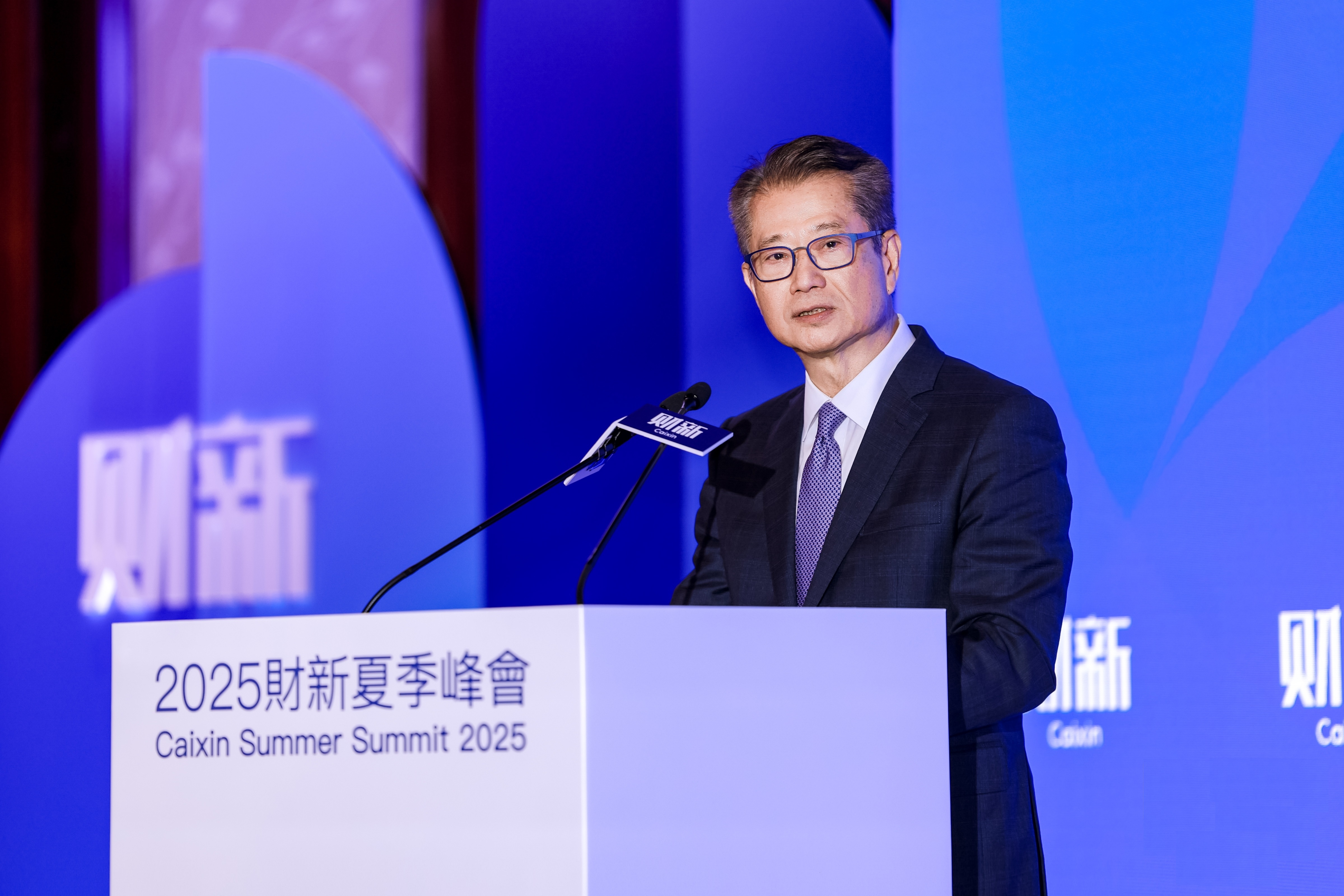
As the world braces for sustained uncertainties, foreign investors continue to vote with their feet, giving Hong Kong markets the confidence in bolstering the financial hub as a safe haven for capital and a financial innovation powerhouse, Financial Secretary Paul Chan Mo-po wrote in his Sunday blog.
The benchmark Hang Seng index has soared more than 20 percent so far this year, making it one of the top-performing stock market indices worldwide. Last month, the daily average turnover on the local bourse had surged 1.2 times to HK$242 billion ($31 billion), while funds raised through initial public offerings amounted HK$79 billion, strengthening the city’s lead in the global IPO standings.
“It can be said that both the depth and breadth of Hong Kong’s stock market have significantly improved. Notably, many cornerstone investors of mega listings are from Europe, the United States, the Middle East and other parts of Asia, reflecting a growing trend of increasing allocations to Hong Kong stocks,” Chan said. “These capital flows underscore the strengthening confidence of international investors in Hong Kong’s financial markets.”
Riding high on the strong momentum of the special administrative region’s asset and wealth management industry, he said it’s believed that, within the next two to three years, Hong Kong will become the world’s largest cross-border asset management hub.
By March this year, the number of funds registered in the Hong Kong SAR had reached 976, with net inflows of over $44 billion, compared with the same period last year, representing a whopping 285-percent surge.
ALSO READ: Chan: HK aims to be global innovation hub with AI at core
Besides the traditional financial services sector, Hong Kong has continued to boom in other areas like digital finance, green finance and the offshore renminbi market, reaffirming its determination to stay at the forefront of global finance.
Chan reiterated the SAR government’s plan to unveil its second high-level policy statement on the development of virtual assets this month after the city passed one of the world’s most comprehensive stablecoin laws, effective from Aug 1.
So far, 10 virtual asset-trading platforms have been licensed, and the Securities and Futures Commission - the city’s securities watchdog - is processing another eight licensing applications following the release of the first policy statement in 2022. The total transaction volume of local banks’ digital assets and related products reached HK$17.2 billion last year during which the total amount of digital assets under bank custody stood at HK$5.1 billion.
Chan said the first-mover initiatives under the stablecoin bill shows Hong Kong’s unique role as a “firewall” and “testing ground” under “one country, two systems”, offering hands-on experience for the overall development of digital finance.
He highlighted the adoption of a more open model that allows licensed issuers to choose from different fiat currencies as anchors for stablecoin issuance.
READ MORE: Chan: Hong Kong's push for mega events economy paying off
“This approach is aimed at attracting institutions from various parts of the world to issue stablecoins in Hong Kong, based on specific application scenarios, significantly enhancing the liquidity of related activities and sharpening the competitive edge of the Hong Kong market.”


